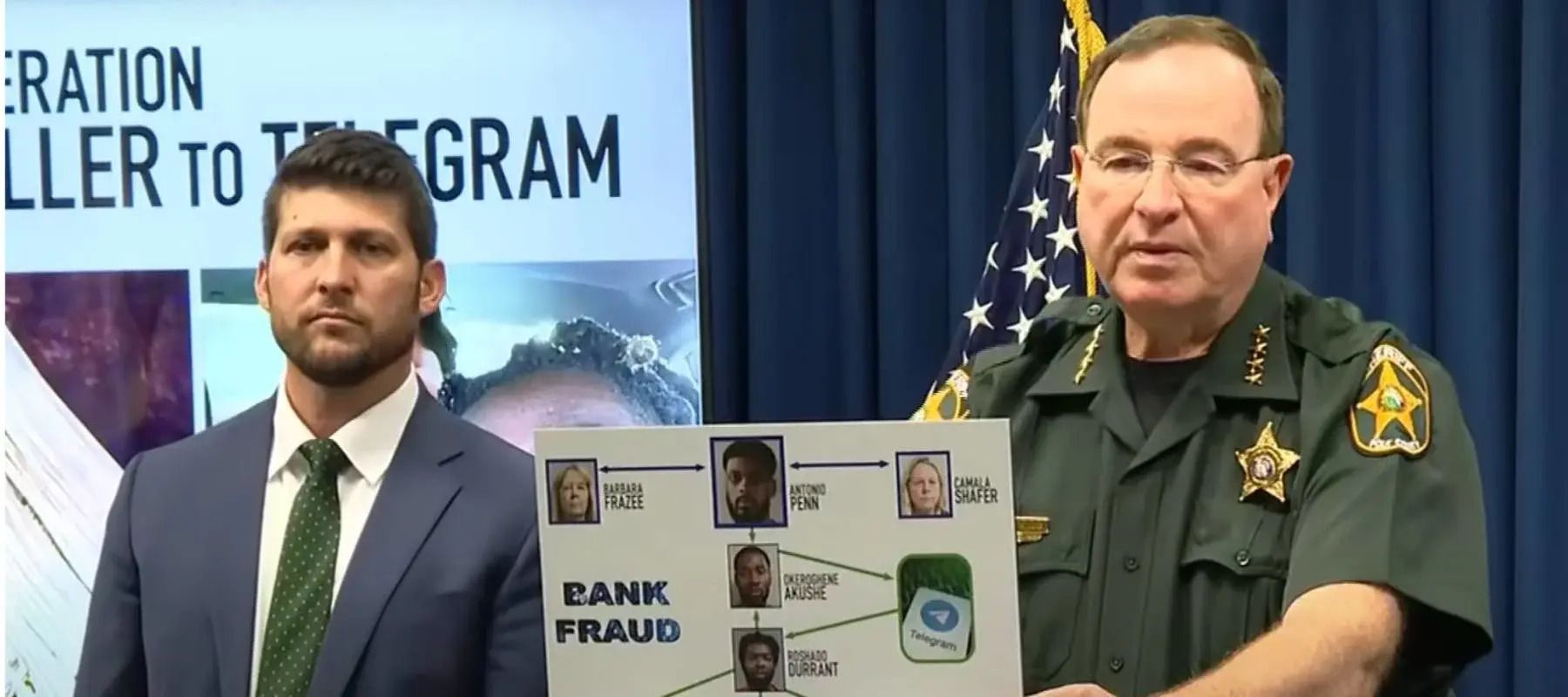- Senior Scam Alerts
- Posts
- 235 Senior Victims. $8.8 Million Stolen. How 3 Bank Employees Sold Customer Information to Cybercriminals
235 Senior Victims. $8.8 Million Stolen. How 3 Bank Employees Sold Customer Information to Cybercriminals
The exploitation of elderly continues to grow

WEEKLY SCAM ALERTS
Week of August 3, 2025
SENIOR SCAM NEWS
235 Victims. $8.8 Million Stolen. Cybercriminal Ring Busted for Exploiting Elderly Bank Customers
This week, a major takedown occurred as seniors across America are being targeted by professional criminal networks—and even trusted bank employees.
Authorities in Florida announced the arrest of eight suspects who stole $8.8 million from over 230 elderly victims by accessing private bank account information and selling it through encrypted messaging apps.
This wasn’t a quick con. It was a sophisticated cybercrime ring involving bank insiders, digital tools, and a web of fraudsters working across multiple states.
Let’s break down what happened—and what you can do to stay safe.

Polk County Sheriff Grady Judd and Attorney General James Utheimer presenting the fraud ring.
How the Scam Worked
According to the investigation led by Florida Attorney General James Uthmeier’s Office of Statewide Prosecution and the Polk County Sheriff’s Office, the scam started inside a Maryland bank.
Three employees—Barbara Frazee (65), Camala Shafer (57), and Antonio Penn (32)—had direct access to seniors’ sensitive account data. Penn, who worked with Frazee and Shafer, would ask them to log in to customer profiles while he secretly took photos of login credentials and financial information.
That data was then sold on Telegram, an encrypted mobile messaging app popular with cybercriminals. One of the buyers? Okeroghene Akushe, a 29-year-old from Missouri.
A Digital Web of Theft
Once stolen, the data made its way through the hands of “recruiters” and resellers who opened new bank accounts, transferred funds, and laundered money across the country.
One suspect, Roshado Durrant, even admitted to police that he worked as a recruiter for two years—forwarding stolen bank files to other scammers in exchange for cash.
The stolen money was used to:
Buy cars
Fund personal bank accounts
Support a lifestyle built on theft and deception
The Victims: Targeted Because They Were Elderly
Officials confirmed what we already know: this ring specifically targeted seniors. Many of the victims were chosen because of their age, vulnerability, or large account balances.
“You’ve got to be a pretty weak and pathetic person to want to cheat and scam our seniors”
The Takedown
The investigation began in April 2023, when Synchrony Bank flagged a suspicious $250,000 transfer. The funds disappeared quickly—triggering red flags for fraud analysts.
With the help of cybercrime units from Florida, Maryland, Missouri, Virginia, and the IRS, law enforcement unraveled the network and made arrests.
Here’s what some of the suspects are facing:
Antonio Penn: $1.02 million bond, charged with racketeering, ID theft, and wire fraud
Okeroghene Akushe: $760,000 bond, multiple felonies
Roshado Durrant: held with no bond
Others include Kevin Clayton, Michael Nevarez, Hassan Phillips, and the bank insiders Frazee and Shafer
In total, over $8.8 million was stolen, affecting 235 victims across the U.S.
What You Can Do to Stay Safe
Here are a few critical steps to help protect your finances and identity:
🔒 Ask your bank to add extra protections—such as two-person verification for wire transfers or alerts for large withdrawals.
📞 Be suspicious of calls or texts requesting account changes or verification you didn’t request.
🧾 Check your bank statements regularly, or ask a trusted loved one to help.
👀 Watch for unfamiliar accounts being opened in your name.
🗣 Talk openly with your bank about senior fraud protections they offer.
Your Voice Could Be the Turning Point
If something feels wrong—it probably is.
Scammers count on silence. They rely on embarrassment to keep you quiet. But reporting a scam doesn’t make you a victim—it makes you part of the solution.
Whether you caught the scam in time or handed over money, your story can help catch criminals, protect others, and recover losses.
📢 What To Do If You’ve Been Targeted
If you're over 60 or helping a loved one navigate fraud, take action right away:
📞 Call the National Elder Fraud Hotline:
1-833-FRAUD-11 (1-833-372-8311)💻 Report it online at the FBI’s Internet Crime Complaint Center:
www.ic3.gov🚔 Contact your local police department, even if the scam didn’t succeed.
What to Include in Your Report:
✅ Names or bank employees involved
✅ Suspicious transactions, messages, or account changes
✅ Screenshots, receipts, or internal documents if possible
Stay alert, stay connected, and let’s keep fighting fraud—together.